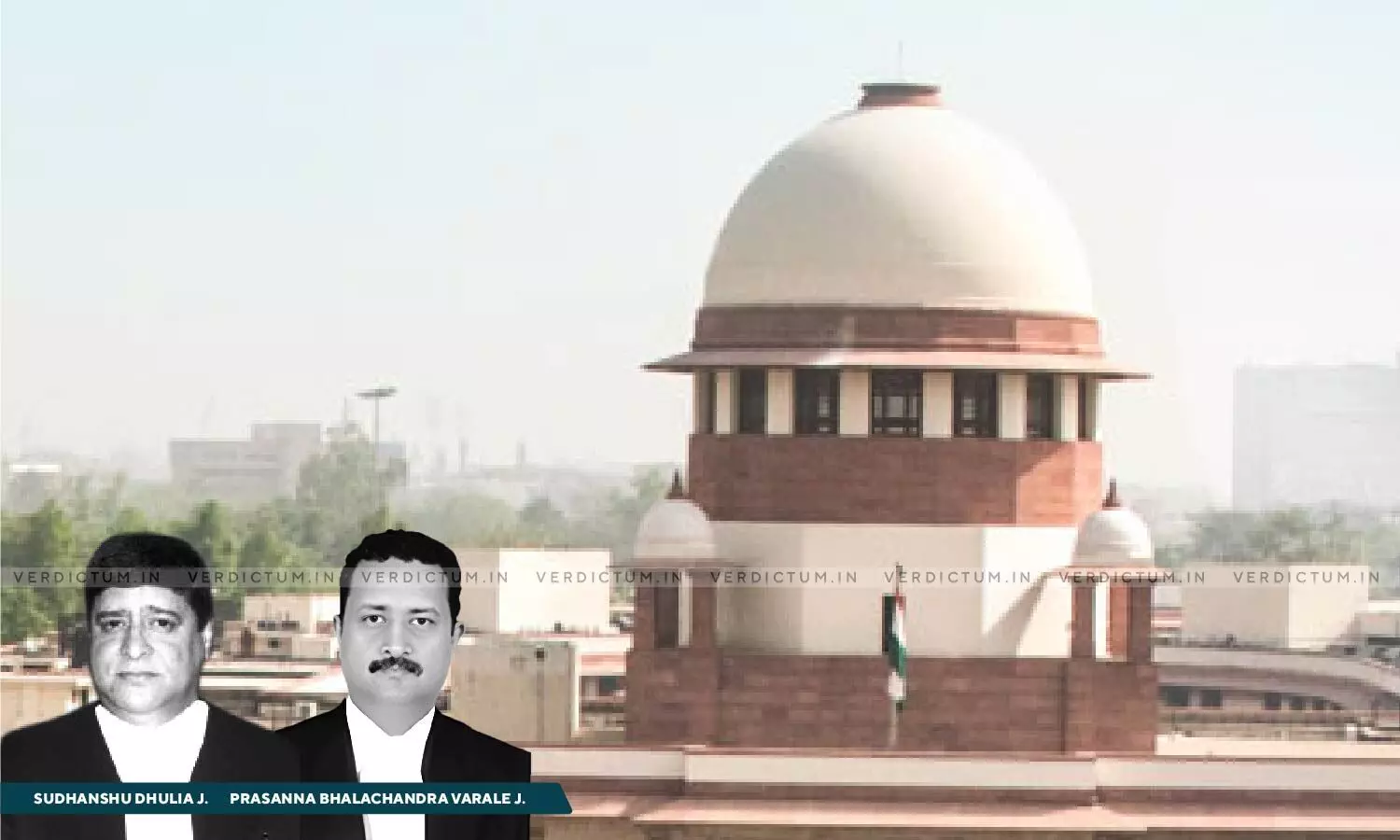
Section 20 CPC Is A Residuary Provision Only Applicable To Cases Beyond Those In Section 15 -19 CPC: Supreme Court
 |
|The Supreme Court observed that Section 20 of the Code of Civil Procedure which provides that a suit can be initiated where the defendant resides or cause of action arises is a residuary provision only applicable to cases beyond those in Section 15 to 19 CPC.
The Court observed thus in a Transfer Petition filed by a company seeking transfer of a case filed by the other company from the District Court, Madhya Pradesh to the City Civil Court, Calcutta, West Bengal.
The two-Judge Bench comprising Justice Sudhanshu Dhulia and Justice Prasanna B. Varale said, “It is an admitted fact that the suit property is situated in Sehore, Madhya Pradesh. Section 16, CPC inter alia provides that suits for the determination of any other right to or interest in immovable property shall be instituted in the Court within the local limits of whose jurisdiction the property is situate. Thus, the petitioner’s reliance on the cause of action arising in Calcutta due to the MoU being executed at Calcutta is completely erroneous in view of Section 20, CPC, which provides that a suit can be initiated where the defendant resides or cause of action arises is a residuary provision only applicable to cases beyond those in Section 15 to 19, CPC.”
The Bench said that thus, this Section has no application in the case as when the subject matter of the MoU (Memorandum of Understanding) is the suit property located at Sehore.
Advocate Prerna Singh represented the petitioner while Advocate Prashant Mishra represented the respondents.
In this case, the parties had entered into an MoU in 2022 whereby the respondent company had agreed to purchase a land admeasuring an area of approx. 74.06 acres (suit property) on an “as is whatever there is” basis for a consideration of Rs. 20,69,92,000/-. It was also agreed that the petitioner company would obtain all necessary approvals/no objection certificates (NOCs) for the transfer of suit property and in case of unprecedented delay in obtaining the same, the petitioner company would be at liberty to deal with suit property by treating the MoU as cancelled and/or terminated.
Subsequently, the petitioner company could not obtain the necessary approvals required for selling the suit property and thus, the respondent company filed a suit for specific performance of the MoU, which the petitioner company sought to transfer to Calcutta where they had already filed a suit for declaration that the MoU stands terminated and is incapable of being acted upon. Both the parties were before the Apex Court with different Transfer Petitions, seeking transfer of the case filed by the opposite party.
The Supreme Court after hearing the contentions of the counsel noted, “Section 10, CPC inter alia mandates that no Court shall proceed with the trial of any suit in which the matter in issue is also directly and substantially in issue between the parties, litigating under the same title, where such suit is pending in the same or any other Court in India having jurisdiction to grant the relief claimed. It has been incorporated to avoid multiplicity of proceedings on issues which are directly and substantially in issue in the previously filed suit.”
The Court concluded that since the suit property is located in Sehore, all property records and government documents would be present in the vicinity, including most witnesses and further, the suit property is mortgaged to Bank of Baroda, through its Bhopal branch and an auction has taken place on the strength of which the Bank, as well as the auction purchasers have been impleaded in the suit filed at Sehore.
Accordingly, the Apex Court directed that the case be transferred to the Court of Principle Judge, Sehore.
Cause Title- M/s Acme Papers Ltd. v. M/s Chintaman Developers Pvt. Ltd. & Ors. (Neutral Citation: 2024 INSC 248)
Appearance:
Petitioner: Advocates Prerna Singh, Sonia Dube, Kanchan Yadav, Surbhi Anand, Tanishq Sharma, Saumya Sharma, AOR M/S. Legal Options, Advocate Prashant Mishra, and AOR Prateek Mishra.
Respondents: Advocates Prashant Mishra and AOR Prateek Mishra.